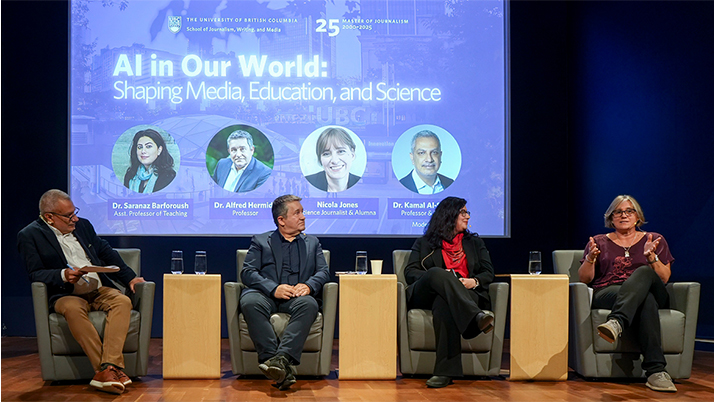

Jeremy Keehn graduated from UBC Journalism in 2004. His first job out of j-school was at The Walrus. After spending six years as an editor at the Canadian magazine, Keehn moved to New York City, where he landed a position as the digital editor of Harper’s Magazine. After a stint as news and business editor of The New Yorker online, he’s now a features editor at Bloomberg Businessweek.
Can you tell us about your current role?
My job is to assign and edit long narratives for Businessweek, working with Bloomberg News reporters and freelance journalists on stories about everything from iconic American companies to North Korean hackers to the hunt for a billion-dollar red pigment. I also recently edited a special issue called The New Space Age.
How did your j-school experience help you transition into a career in journalism?
It was definitely a valuable credit to have on my C.V. as I sought internships after graduating. I’d say it helped me more practically after I was lucky enough to get my first real job in journalism, at The Walrus, editing its Field Notes section. In that gig, I was able to draw on the experience I’d gained as a co-editor of the Thunderbird, as well as the time I’d spent picking the brain of my magazines professor, David Beers, at his online publication The Tyee, where I’d go in and hang out once a week.
To my surprise, I was even able to make use of my masters thesis, which back then had to be more theoretically oriented than it does now (or so I understand). I’d written mine on whether journalism had a role to play in anticipating global violence, rather than just chasing it after the fact, and I was able once in a while, as an editor, to assign pieces that showed where the seeds of violence might be forming. Assigning that kind of piece means not taking for granted the received wisdom about what’s newsworthy, which is exactly the kind of thing a good j-school asks students to do.
Of the lessons you learned at UBC, which one has proven to be the most valuable?
Probably to treat journalism as a craft, and so as a field where you ought to be learning new things all the time, even after you’ve finished your formal education.
What’s been the piece of journalism you’ve produced of which you’re most proud?
As a magazine editor, you sacrifice the feeling of direct impact you might get as a reporter in favor of the pleasure of working on multiple subjects and projects at a given time. This means playing a limited role in getting the work out, a lot of the time, but when everything comes together, it can be really satisfying. The run I had as an editor that I’m most proud of was probably the October 2009 issue of The Walrus. I worked on three features in that issue. One, a 10,500-word narrative by Chris Turner, was a sprawling and prescient report that combined research on ocean acidification with a philosophical consideration of geoengineering as a means of combating climate change. Another, by Deborah Campbell, was a tightly paced profile of Al Jazeera’s internationalist, unsensational approach to news. And the third, by Christopher Shulgan, was a moving first-person piece about the decline of the middle-class dream for auto-industry workers in Windsor, Ontario.
I’m not sure what effect those stories had, exactly, but I thought they were great pieces, and if readers found them entertaining and edifying, I’d take that. In terms of social impact, I’d be more inclined to cite a Walrus profile by Marian Botsford Fraser, of Renée Acoby, who was then in the deepest recesses of Canada’s women’s prison system. Marian wrote about a corrections protocol that had been applied to Acoby, which involved extended periods of segregation, among other restrictions. The protocol was discontinued one year after Marian’s article was published. I’m not sure whether the piece played a role in this policy shift, but at a minimum, it contributed to broader awareness and discussion of the subject.
Would you recommend the j-school to aspiring journalists?
There are two separate parts to the first question, I think. One is whether I’d recommend j-school generally, and the other is whether I’d recommend UBC in particular. When I’m talking with people who are considering going to journalism school, I tend to tell them that if they’re the kind of person who benefits from a structured environment, then it might be good a good choice for them—but that if their temperament is highly entrepreneurial or anti-institutional, they might consider another possibility for learning and practicing the craft.
I’d advise even the latter group, though, that it’s more valuable than you might think to have a chance to think about the ethical and intellectual issues involved in journalism before you hit the job market. UBC was a good place for this, for me; far more of the theory and craft I learned there has applied to my work than I expected it would. And I got some valuable practical experience and expanded my intellectual horizons, in the process.


